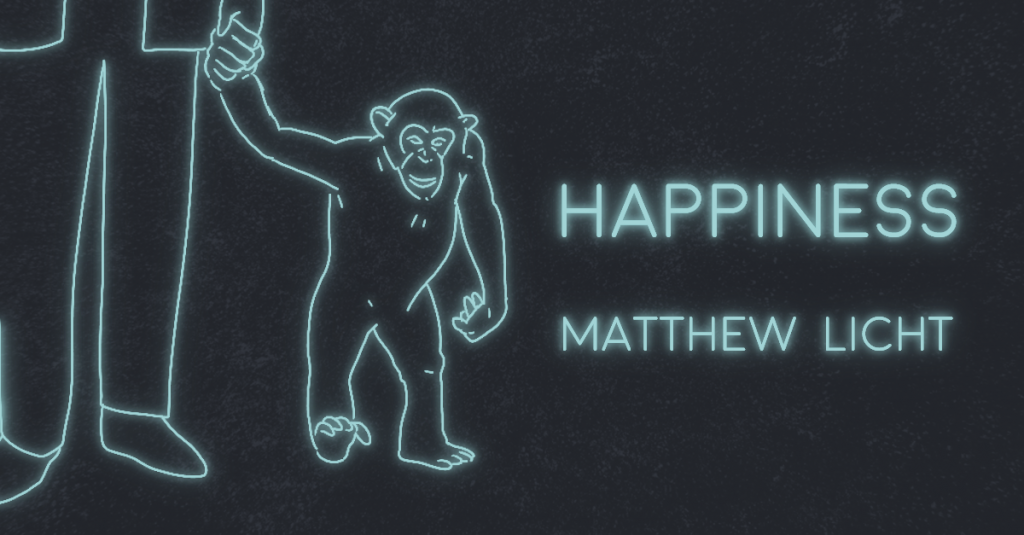
HAPPINESS by Matthew Licht
My father wasn’t a traveling salesman, just a guy who never seemed to be where he was. A look crossed his face if someone came into the room where he was thinking or dreaming or scheming or whatever he was pretending to do, or spoke to him directly when he was present but lost. The look said who are you, what are you doing here, what do you want from me? Everything was fine. We lived in an acceptable house where hot meals were a regular feature. Then one day Pop came home with a monkey. The baby hadn’t begun…
